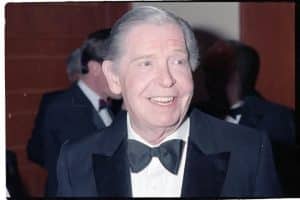In the early years of American television, one man reigned supreme: Milton Berle. Known as “Uncle Miltie,” he wasn’t just a comedian—he was the face of TV itself. In 1948, his Texaco Star Theater drew an astonishing 80% of viewers nationwide. Families rushed home to watch, restaurants closed early, and crime rates reportedly dipped on Tuesday nights. Berle had turned television into America’s new hearth.

But behind the slapstick and costumes was a man shaped by a relentless stage mother. Pushed into show business as a child, Berle spent his youth in silent films and vaudeville instead of classrooms and playgrounds. His mother’s control stunted his relationships, leaving him with a lifelong hunger for validation.
On stage, Berle thrived—whether in vaudeville, drag comedy, or live television. He became infamous for “borrowing” jokes, but his charisma kept audiences hooked. He even defied sponsors to showcase Black performers, breaking barriers during an era of segregation.
Yet fame proved fickle. As America embraced family sitcoms like I Love Lucy, Berle’s loud, urban humor fell out of favor. NBC kept him on air, but overexposure and changing tastes eroded his popularity. His personal life—rocky marriages, affairs, and scandal—mirrored his professional decline.
By the time of his death in 2002, Berle’s passing barely made headlines. The man who once defined an entire medium had faded into cultural obscurity.
Milton Berle’s story is both triumph and tragedy: the boy pushed too hard, the man who helped invent television, and the star who learned how quickly the spotlight moves on. His life reminds us that behind every laugh is a cost, and that even legends can be forgotten.





